OpenAI will provide its “ChatGPT Go” service for free in India for one year
OpenAI is providing its “ChatGPT Go” service for free to all users in India for one year, starting from November 4, 2025. OpenAI makes ChatGPT Go free for Indian users for one full year from November 4.
From 4 November, OpenAI will make ChatGPT Go free in India for a year, giving users premium GPT-5 access, faster replies, and smarter AI capabilities without subscription fees.
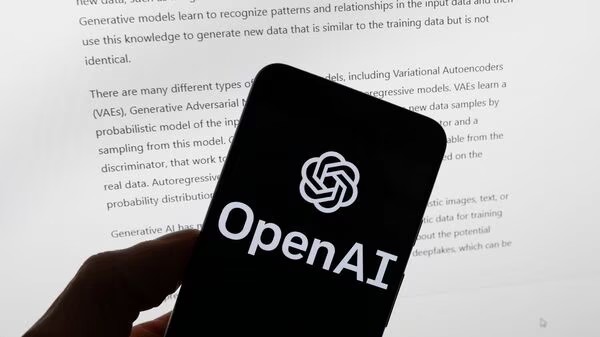
OpenAI makes ChatGPT Go free for Indian users for one full year (AP)
OpenAI is deepening its ties with India by offering a full year of free ChatGPT Go access starting November 4, 2025. The announcement comes just days before the company’s first Dev day Exchange event in Bengaluru, a key gathering that underlines India’s growing influence in OpenAI’s ecosystem. Usually priced at ₹399 a month, the Go plan will now be free for twelve months for new and existing Indian users. OpenAI’s statement says the move builds on the remarkable adoption seen since ChatGPT Go launched in India earlier this year, where subscriptions surged sharply in just weeks.
What users get with the Go plan
ChatGPT Go includes all features of the free plan plus enhanced capabilities powered by GPT-5. Users can access more message credits, create images daily, upload files for analysis, and benefit from longer chat memory. This blend of features caters to professionals, creators, and students looking for efficient and affordable AI assistance.
The plan has been popular in countries such as Brazil, Kenya, and Egypt, but India stands out as a key growth region. OpenAI states that this offer aligns with its mission to make AI more accessible and useful for a broader population, ensuring that people can benefit from advanced tools without financial barriers.
Why India matters to OpenAI
India’s digital landscape has expanded rapidly, with hundreds of millions of users already experimenting with AI for education, small business operations, and personal productivity. Recognising this potential, OpenAI is working alongside educational bodies and local organisations to promote responsible AI use and learning.
By waiving subscription fees for a year, OpenAI also aims to familiarise new users with premium AI workflows. Once the free period ends, many may continue using Go or upgrade to higher tiers, ensuring sustainable growth for the platform.
The limited-time offer begins 4 November 2025, and users are advised to enrol early through the ChatGPT website. The company hasn’t confirmed how long the sign-up window will remain open. For OpenAI, this initiative strengthens its leadership in India’s competitive AI market, while for users, it’s a timely opportunity to explore GPT-5 features without spending a rupee. OPPO Enco X3 bring 55 dB voice focused ANC, Dynaudio tuning and 45 hours on a charge.
OPPO’s Enco X3 go after voice noise with up to 55 dB ANC, Dynaudio tuning, dual drivers and up to 45 hours total playtime. Priced at SGD 189.

Oppo Enco X3s earphones. (Oppo)
OPPO launched the Enco X3 alongside the Find X9 series in Barcelona on October 28, 2025. The earbuds focus on everyday chatter. Each bud uses three microphones with a dual feed system and real time processing. OPPO claims up to 55 dB noise reduction across a wide band to 5,500 Hz, with extra focus on the mid band for commutes, flights and busy offices.
Noise control built for daily use
Dynamic ANC adjusts in real time as your surroundings change, toning down a station announcement or a loud aisle chat quickly. Adaptive Mode sets both cancellation and transparency to match the scene. Transparency uses a separate audio path, so ambient sound feels more natural. For calls, three microphones work with AI noise reduction; OPPO says calls stay clear in winds up to 20 kilometres per hour. Fit will still decide how much of this you actually get.
Sound tuned with Dynaudio
The Enco X3 are tuned with Dynaudio. Four sound profiles are on board: Dynaudio authentic live, Pure vocals, Ultimate sound and Thundering bass. Inside are coaxial dual dynamic drivers, 11 mm and 6 mm. Each driver has its own DAC for cleaner handling of highs and lows. OPPO also adds a subtle reverb effect to widen the stage, including when paired to third party devices.
Connectivity and features
They use Bluetooth 5.4 with fast pairing on OPPO phones. Codecs include LHDC 5.0, AAC and SBC. A game mode lowers latency. With OPPO phones, AI Translate offers live and face to face translation in more than twenty languages. On other Android and iOS phones, the HeyMelody app handles controls and updates.
Each bud weighs about 4.7 g. They are IP 55 rated for dust and water. The finish is Nebula Silver and the case carries the Dynaudio logo. OPPO lists up to 11 hours of music with ANC off on AAC, with up to 45 hours including the case. The earbuds charge in about 50 minutes and the case in about 80 minutes over USB Type C. Lab figures vary with volume, codec and temperature.
Price and availability
The Enco X3s are priced at SGD 189. Wider rollout is planned. India timing is not announced yet; expect local updates on dates.
Most earbuds mute a steady drone, while voices are tougher. The Enco X3 lean into that gap with mid band control and better wind handling. Two things to watch now are LHDC support on your phone and how well Adaptive Mode balances quiet with awareness over long commutes. If both land, they look set for travel and office days.
The “ChatGPT Go” plan, which is usually priced at ₹399 per month, is a mid-tier subscription that offers several advantages over the basic free version, including: ChatGPT Go: All You Need to Know About Open ai’s Plan to Offer One-Year Access to ChatGPT Go for Free in India.
Launched in August at Rs. 399 per month, ChatGPT Go is a mid-tier plan with higher usage limits and access to GPT-5 and data tools. OpenAI has reportedly announced that users in India will receive one year of free access to the ChatGPT Go plan, starting November 4, as part of a limited-time promotional offer. The move comes ahead of the company’s first DevDay Exchange event in Bengaluru. Originally launched in August at a monthly cost of Rs. 399, ChatGPT Go serves as a mid-tier subscription between the free and plus plans, offering higher message and image generation limits. It also offers access to GPT-5, Python, and data analysis tools. Here is everything you need to know about what ChatGPT Go offers.
ChatGPT Go Free Access: Eligibility, Benefits
OpenAI will reportedly provide all users in India with a ChatGPT Go to Be Free for All Indian Users for One Year Soon, Says OpenAI: Report OpenAI reportedly announced on Tuesday that it will provide one year of free access to ChatGPT Go plan to all Indian users. As per the report, the exclusive access is being provided ahead of the company’s first DevDay Exchange event in India scheduled for November 4. The subscription plan was exclusively released for Indian users in August, and offers a bridge between the free tier and the more expensive ChatGPT Plus subscription. The San Francisco-based artificial intelligence (AI) giant is also planning several other updates for Indian users ahead of the event.ChatGPT Go to Be Free for Indian UsersAccording to a PTI
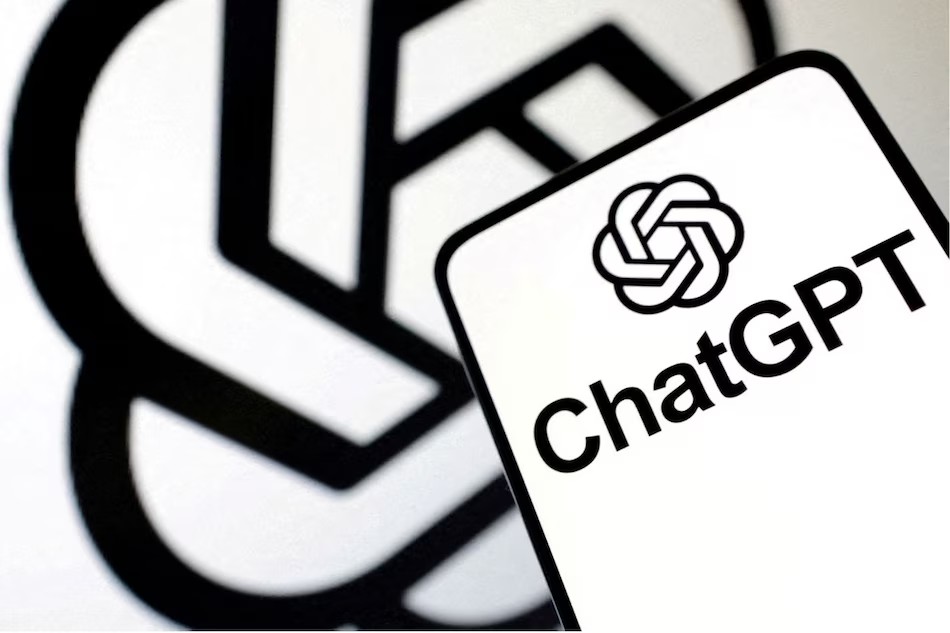
OpenAI will offer free access to ChatGPT Go as part of a limited-time promotional event start begins on November 4. Those who sign up during that time will be able to access all the ChatGPT Go features for one year without any cost.
Separately, Nick Turley, the Vice President and Head of ChatGPT at OpenAI, said in a Excited for our first DevDay Exchange event in India

on November 4. Ahead of that, we have some exciting updates coming for India users over the next couple of weeks. Stay tuned! on X (formerly known as Twitter), “Excited for our first Dev day Exchange event in India on November 4. Ahead of that, we have some exciting updates coming for India users over the next couple of weeks. Stay tuned! Notably, Open ai’s first Dev day Exchange event in India will take place in Bengaluru. Introduced in August, the ChatGPT Go subscription is priced at Rs. 399 per month, and is available across web, iOS, Android, and desktop platforms. The India-exclusive plan includes everything in the free tier and brings higher rate limits on messages and image generation. The company says that users can get 10 times higher message limit, and equally as high image generation and file uploads.
The biggest benefit of this plan is for those users who want an extended access to the company’s latest frontier model, GPT-5. Additionally, the new plan also grants higher limits in Python and other data analysis tools. OpenAI Begins Hiring Ahead of Plans to Office in India by 2025-End. OpenAI currently has one employee in India, but the AI firm is ramping up hiring before its first office opens in New Delhi by the end of the year. OpenAI has confirmed that it will open its first office in India by the end of this year. Announced by a company executive, the office is set to open in New Delhi. Additionally, the company has also begun hiring new employees, before it sets up operations in the country. OpenAI currently has only a single employee in India. The development comes after the company recently announced a new, cheaper alternative to the ChatGPT Plus and Pro subscription plans in the country, making the AI chatbot more accessible to users at a lower price point.
OpenAI’s First Office in India Will Be Located in New Delhi
Open AI’s Head of Communications for the Asia-Pacific region, Jake Wilczynski, confirmed via a LinkedIn post that the AI company is OpenAI to Expand in India With First Office and Hiring Drive its presence in India by opening its first office in New Delhi. Along with the confirmation, the company executive also said that the first office will be opened by the end of 2025.
Wilczynski said that India is ChatGPT’s second-largest market by the number of users, after the US. He added that the number of weekly active users of ChatGPT in India jumped by more than four times in “just the past year”. OpenAI also lists India among the top five developer markets globally, he said, while adding that India has the highest number of students on ChatGPT. Meta Reportedly Freezes Hiring in AI Division Amid Restructuring of Superintelligence Labs.
Meta reportedly froze hiring in its AI division last week, after onboarding more than 50 researchers.
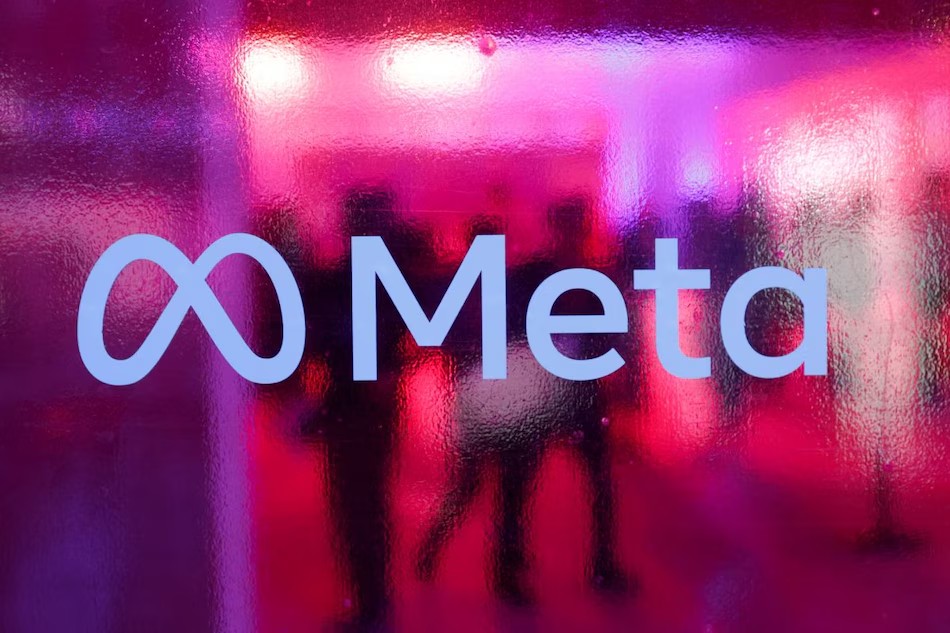
Meta CEO Mark Zuckerberg has reportedly divided Superintelligence Labs into four groups Meta has reportedly frozen hiring in its newly created artificial intelligence (AI) division. As per the report, the Menlo Park-based tech giant is no longer pursuing AI researchers and engineers from rival companies or looking to reverse-acquihire personnel from smaller startups working with the technology anymore. While the reason behind the move was not disclosed, the report coincides with claims of the company restructuring the Superintelligence Labs by dividing it into four specialised groups. It is also said that Meta has discussed downsizing the AI team for better workspace management. Meta Reportedly Pauses Its Aggressive Hiring Policy Meta Freezes AI Hiring After Blockbuster Spending Spree company reorganizes its sprawling artificial-intelligence operation, whose spiraling cost has drawn investor scrutiny Meta Platforms has most often pushed the pace of the tech industry’s AI hiring this year. john g mabanglo/epa/shutterstock. Meta Platforms has frozen hiring in its artificial-intelligence division after spending months scooping up 50+ AI researchers and engineers, according to people familiar with the matter.
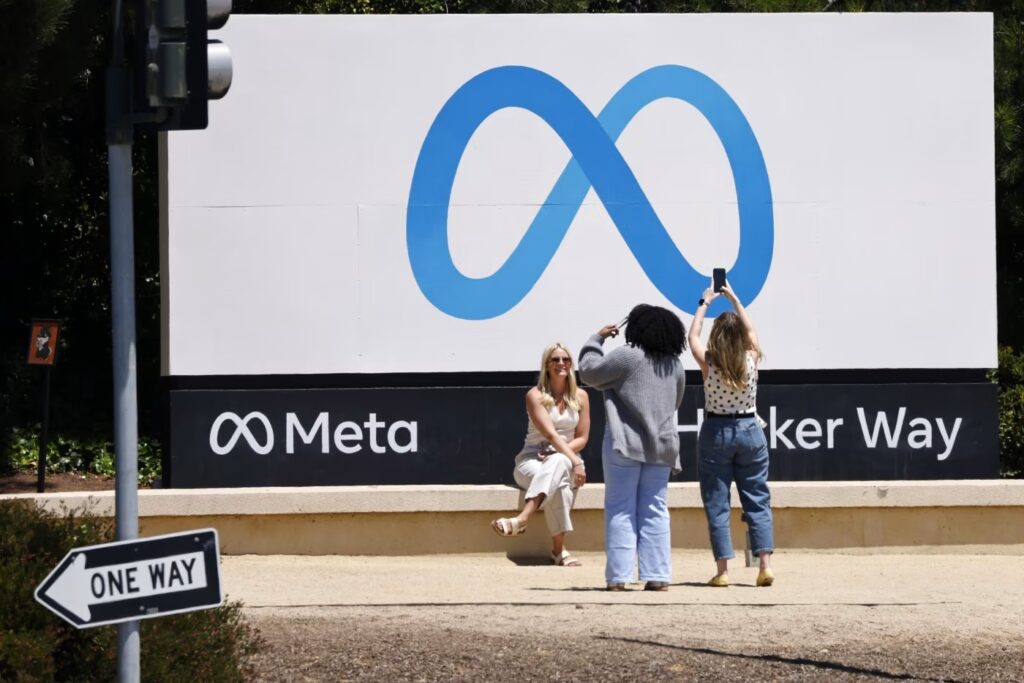
The hiring freeze, which went into effect last week and coincides with a broader restructuring of the group, also prohibits current employees from moving across teams inside the division. The Wall Street Journal, Meta has now frozen its hiring spree for its AI division. Citing unnamed people familiar with the matter, the report claimed that the decision to stop hiring new talent was made last week. So far, the company is said to have hired more than 50 AI researchers at seven and eight-figure salary packages.
In the past few months, Meta CEO Mark Zuckerberg has aggressively pursued top AI researchers and engineers from companies such as Anthropic, Google, OpenAI, and Microsoft. The CEO has also acquired several AI startups to absorb their top talent into Meta. In one such publicised incident, the tech giant unsuccessfully attempted to buy former Who Is Mira Murati: The AI Startup CEO Who Withstood Meta’s Billion-Dollar Recruitment Offensive. Meta reportedly attempted to purchase Mira Murati’s Thinking Machines Lab earlier this year. Thinking Machines Lab, despite making an offer worth $1 billion (roughly Rs. 8,700 crore) to the startup’s Co-Founder, Andrew Tulloch.
A Meta spokesperson confirmed the hiring freeze to WSJ and said it was a “basic organisational planning: creating a solid structure for our new superintelligence efforts after bringing people on board and undertaking yearly budgeting and planning exercises.” Interestingly, the hiring freeze comes at a time when a separate report claims that Meta is also Meta Is Reportedly Restructuring Its AI Division Again to Create Four Specialised Groups Meta’s Superintelligence Labs is reportedly being split into four groups to focus on specific products and developments.
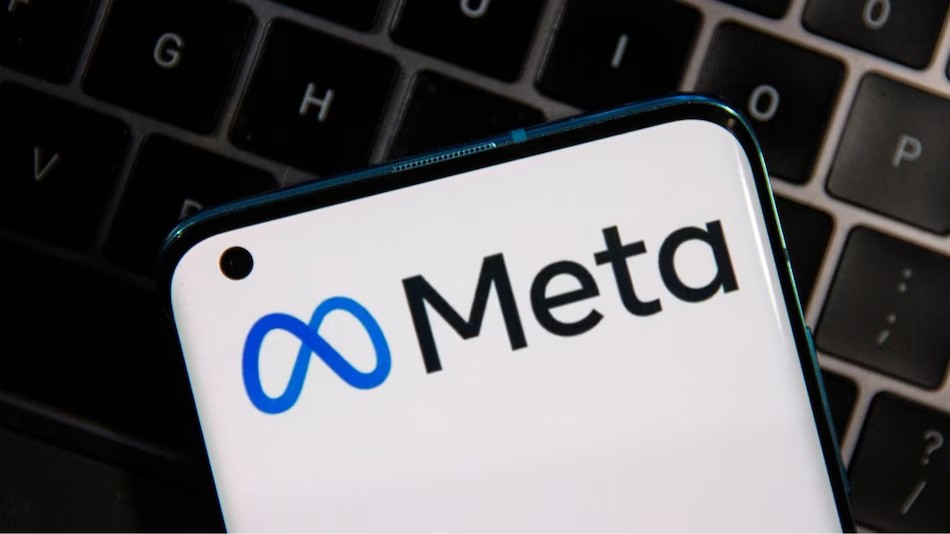
Meta’s latest restructuring is reportedly aimed at better organising the AI division Meta is reportedly restructuring its artificial intelligence (AI) division again, following the recent establishment of the Superintelligence Labs. As per the report, the new reorganisation will divide the division into four specialised groups, with each tasked with developing a specific area. Alongside the restructuring, the Menlo Park-based tech giant is reportedly also planning to downsize the division, which is said to have grown to thousands of employees. The company is reportedly also planning to use third-party AI models for its products, likely as a stopgap measure.
Meta’s Superintelligence Labs Reportedly Split Into Four Mark Zuckerberg Shakes Up Meta’s A.I. Efforts, Again
Meta internally announced a new restructuring of its artificial intelligence division amid internal tensions over the technology, people with knowledge of the matter said.
Mark Zuckerberg, Meta’s chief executive, has spent the past few months Now he has taken further action that may compound internal turmoil over the technology.
On Tuesday, Meta announced internally that it is splitting its A.I. division — which is known as Meta Superintelligence Labs — into four groups, two people with knowledge of the situation said. One group will focus on A.I. research; one on a potentially powerful A.I. Meta Is Building a Superintelligence Lab. What Is That?
Mark Zuckerberg has reorganized his company’s ambitions around a hypothetical future that is suddenly the talk of Silicon Valley. Another on products; and one on infrastructure such as data centers and other A.I. hardware, they said.
The reorganization is likely to be the final one for some time, the people said. The moves are aimed at better organizing Meta so it can get to its goal of superintelligence and develop A.I. products more quickly to compete with others, the people said. Some A.I. executives are expected to leave, the people said. Meta is also looking at downsizing the A.I. division overall — which could include eliminating roles or moving employees to other parts of the company — because it has grown to thousands of people in recent years, the people said. Discussions remain fluid and no final decisions have been made on the downsizing, they said. In what would be a shift from Meta’s using only its own technology to power its A.I. products, the company is also actively exploring using third-party artificial intelligence models to do so, the people said. That could include building on other “open-source” A.I. models, which are freely available, or licensing “closed-source” models from other companies.
The changes follow months of tumult and restructuring at Meta over its A.I. strategy. Mr. Zuckerberg, 41, is sparing no expense and is willing to upend his company to stay relevant in A.I. as the push to create the most advanced technology has boiled down to a few key players. How Meta will fare is being closely watched, as the A.I. race creates new winners and losers.
Mr. Zuckerberg’s determination was evident in June after Meta struggled to advance its newest A.I. models. That month, the company announced a dedicated to creating an A.I. more powerful than the human brain. Meta Invests $14.3 Billion in Scale AI to Kick-Start Superintelligence Lab Meta is making its first major minority investment in an outside company as it tries to catch up to a growing field of artificial intelligence rivals. in the start-up Scale AI and brought on Alexandr Wang, its chief executive, as its new chief A.I. officer. Meta also offered some hire researchers from rivals like OpenAI and Google, igniting a Silicon Valley poaching war.

In an ‘Superintelligence’ Will Create a New Era of Empowerment, Mark Zuckerberg Says
Mr. Zuckerberg made his comments about the hypothetical artificial intelligence as Meta posted a 36 percent quarterly increase in profit and a 22 percent jump in revenue. Mr. Zuckerberg said he was betting on superintelligence to usher in “a new era of individual empowerment,” adding that A.I. has already improved Meta’s core advertising business. The company said its capital expenditures could be as much as $72 billion this year, most of which would go toward building data centers and hiring A.I. researchers. A Meta spokeswoman declined to comment. Some details of the restructuring were Meta Plans Fourth Restructuring of AI Efforts in Six Months by The Information.
Since Mr. Zuckerberg created the superintelligence team under Mr. Wang, tensions have surfaced. Mr. Wang’s team is focused on creating the company’s most powerful A.I. model, known as a “frontier model,” two people with knowledge of the matter said.
The new team has discussed Meta’s New Superintelligence Lab Is Discussing Major A.I. Strategy Changes
Members of the lab, including the new chief A.I. officer, Alexandr Wang, have talked about abandoning Meta’s most powerful open source A.I. model in favor of developing a closed one. Which would be a major departure from the company’s In Battle Over A.I., Meta Decides to Give Away Its Crown Jewels the tech giant has publicly released its latest A.I. technology so people can build their own chatbots. Rivals like Google say that approach can be dangerous. “Open Sourcing” its models. A closed model keeps its underlying technology secret, while an open-source A.I. model can be built upon by other developers. The new team has chosen to abandon Meta’s previous frontier model, called Behemoth, and start from scratch on a new model, the people said. Behemoth’s release was delayed last spring after disappointing performance tests, one person said.
As Meta has spent billions to bring in A.I. talent, some members of the old guard have chafed at the new hires, three people with knowledge of the matter said.
In July, Meta named Shengjia Zhao, an OpenAI researcher and co-creator of its ChatGPT chatbot, as its chief A.I. scientist. In recent weeks, Mr. Zhao has had a line of Meta’s old A.I. researchers and employees outside his office, where he has questioned them about their past work while interviewing them for new roles, one person said.
Nat Friedman, the former chief executive of GitHub, and Daniel Gross, who previously ran a start-up called Safe Superintelligence, will lead development of new A.I. features under the products and applied research division, two of the people said. There has been personnel churn. Joelle Pineau, a leading computer scientist at Meta, left the company this year and later joined Cohere, an A.I. start-up. Angela Fan, a research scientist who worked on Meta’s open source A.I. model known as Llama, recently left for OpenAI. Loredana Crisan, a vice president of generative A.I., is also leaving the company to join the software company Figma as chief design officer, two people said.
Some longtime A.I. leaders have stayed put. Rob Fergus, who co-founded Meta’s A.I. research division in 2014, will continue as day-to-day head of the company’s Fundamental AI Research lab, or FAIR, the people said. The FAIR division is responsible for advancing A.I. technology through open-source research. Ahmad Al-Dahle and Amir Frenkel, who worked on generative A.I. products, are reporting to Mr. Wang and focusing on strategic A.I. initiatives.
A correction was made on
An earlier version of this article misspelled the surname of one of the people now reporting to Alexandr Wang on Meta’s strategic A.I. initiatives. They are Amir Frenkel, not Frenkle. Explore Our Coverage of Artificial Intelligence
News and Analysis
OpenAI: The company is restructuring to become more traditional for profit business and said the nonprofit that controlled the organization would receive a $130 billion stake in the new company.
Amazon: The company Amazon to Cut 14,000 White-Collar Jobs. The company is looking to slash costs by “reducing bureaucracy, removing layers, and shifting resources” as it continues to spend aggressively on artificial intelligence.